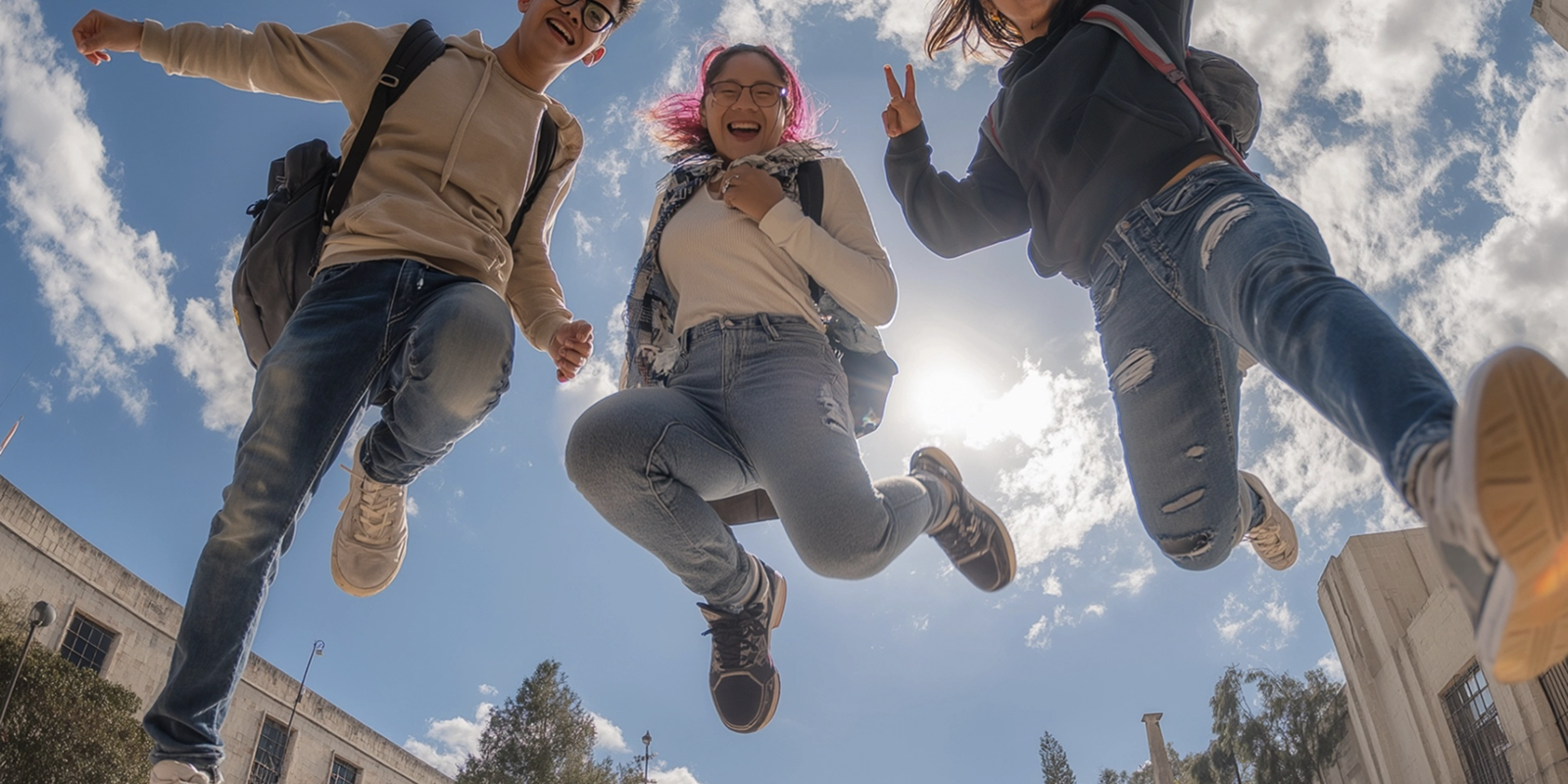Tiny Fellowship 2025 Impact Report
Edupreneurs Transforming Learning

This year, 118 visionary educators and innovators turned their ideas into action through our Tiny Fellowship program.
The results?
Over 2,723 student participants, more than 871 hours of new educational programming delivered, and 101 ventures launched across 32 states.
But the numbers only tell part of the story.
Program Reach and Scale
The Tiny Fellowship is our core program for incubating early-stage education ventures. During this three-month sprint, entrepreneurs refine their ideas, design and run pilots, and gather proof of concept – all supported by coaching, a $5,500 seed grant, and a dynamic peer community.
What did this look like in 2025? Our fellows:
- Launched or significantly developed 101 education ventures
- Reached 2,723 participants through their pilots
- Delivered 52,278 minutes (over 871 hours) of programming
- Operated across 32 states, with 20 pilots showing potential for nationwide impact
Most importantly, the fellowship welcomed founders from all walks of life: those working full-time jobs, part-time innovators, parents juggling multiple responsibilities, and educators testing new approaches without formal organizations.

Measuring Impact on Students and Communities
Education entrepreneurship isn't just about launching ventures – it's about creating meaningful change for learners.
The 2025 cohort delivered impressive results:
- Confidence & Clarity: 85% of participants across various programs reported increased confidence, clearer action plans, and tangible skill gains.
- Cultural Connection: 92% of students in culturally-rooted programs felt more seen, connected to their identity, and likely to engage in similar spaces again.
- High Recommendation: 95% of participants would recommend the program or attend again – perhaps the most telling metric of value.
The median pilot reached around 15 participants and lasted about 6 hours total, though some fellows engaged up to 100 participants.
This "start small, learn deeply" approach allowed founders to gather meaningful feedback before scaling.
Growth Through Structured Support
The fellowship doesn't just transform students – it transforms founders.
- 86.3% improved their ability to assess and analyze effectiveness using measurable outcomes
- 85.1% became more skilled at clearly communicating their idea
- 83.2% grew in their ability to communicate their venture's mission and impact
- 83.0% improved at gathering community input and integrating it into solutions
Perhaps most importantly, 96% felt very or extremely confident in their ability to repeat the pilot design process learned in the fellowship – creating a foundation for continuous innovation.
The coaching quality speaks for itself: 100% of fellows agreed that their coach was a supportive thought partner, with 89% "strongly agreeing."
This mentorship, combined with the $5,500 seed grant (rated "extremely useful" by 74% of fellows and "very" or "extremely" useful by 93%), created the conditions for success.
The overall value is clear: approximately 95% of fellows found the fellowship Very or Extremely Useful for themselves and their venture (76.8% Extremely Useful, 17.9% Very Useful).
Ventures Addressing Education's Most Pressing Challenges
The 2025 cohort represented a rich variety of approaches to educational innovation:
- Programs/Services: 27.4%
- Ed Tech: 20.0%
- Schools: 16.8%
- Community-Based Initiatives: 12.6%
- Other models (Tutoring, Homeschooling, Online Platforms): 23.2%
Beyond these structures, the ventures focused on critical areas: youth development (52%), social-emotional learning (43%), community building/activism (41%), arts & culture (33%), and STEM (28%).
Importantly, these entrepreneurs looked beyond traditional classrooms, 40% involved supporting parents/families, and 31% focused on educator professional development.
Pilot Success Stories
Behind the statistics are powerful stories of transformation. Here are just a few of the remarkable pilots launched by this year's fellows:
Mapping Your Local Environment (MYLE) trained local journalists and community advocates to map environmental justice concerns using geospatial tools. In their workshops across Georgia and Michigan, 44% of participants identified as journalists and 36% as community advocates/organizers.
Before the workshop, 44% of participants were "not familiar at all" with using data and geospatial tools in their work. After participating, 64% felt "somewhat confident" and 36% felt "very confident" using these tools. Most impressively, 100% of participants said they would recommend the workshop to their peers, demonstrating the immediate impact on professional skills development.
Dare To Be Academy, a Maricopa, AZ-based microschool serving autistic and neurodiverse learners, implemented a structured 6-hour-per-day, 4-day-per-week schedule in a sensory-friendly environment.
The curriculum encompassed core academic subjects, creative disciplines, and designated times for relaxation and play. Both students demonstrated measurable improvements in Language Arts and Mathematics, while enhanced interaction and collaboration indicated growth in social skills and peer relationships.
Parents reported heightened confidence in supporting their children's educational journey and noted positive changes in their children's attitudes toward learning. The pilot achieved 100% retention of participants, confirming that neurodiverse students thrive in tailored educational environments.
SEEDschool delivered LEAPLAND, a card-based ideation and roleplaying game in a mini-bootcamp format that simulated the startup journey. All teen participants reported increased confidence in business planning, AI usage, and startup ideation after the program. 100% of teens learned at least two new tools (ChatGPT, Canva, Uizard), and both parents reported higher confidence in supporting their child's career exploration.
Every participant said the experience was more engaging than traditional tech programs, and 100% wanted to participate in future tournaments or bootcamps, proving that learning through play isn't just engaging—it's effective.
Howard & Elizabeth Caldwell Foundation RISE Mentorship Program supported first-generation college students with learning disabilities through personalized mentorship and targeted workshops. In their financial literacy sessions, 100% of students stated they would apply the financial principles shared and would recommend the workshop and mentoring program.
After the health and wellness workshop, all participants felt more equipped to manage their mental wellness and 100% shared they would participate in similar workshops again. The "Life After College" workshop helped 66% of students feel better prepared for post-graduation challenges, addressing a critical gap in support services.
ScholarComp helped parents and students discover academic competitions through in-person and virtual events. With 123 total participants (97 parents and 26 students), their data revealed that 81% of parents didn't feel confident about competitions available for their children, and 75% weren't sure if their children would be interested.
However, after presentations, 90% of parents said they would encourage their children to try competitions. Most impressively, 31 students signed up for new competition activities, and 84 participants subscribed to their newsletter, demonstrating the power of accessible information in encouraging academic competition participation.
The Ivy School piloted a creative writing program incorporating the Science of Reading and Science of Human Behavior. Their diverse cohort of 4th-8th grade students included a nonverbal student with Down's Syndrome. At the program's start, none of the students could identify parts of speech or felt comfortable writing poetry.
By the end, all students could identify and use parts of speech to write poems, with each student composing at least four poems. Student engagement significantly increased from an average of 50% to 90%, and all participants completed a chapbook collection of poems, proving that well-designed instruction can make advanced skills accessible to all learners..

In Their Own Words: The Fellowship Experience
The numbers tell one story, but the fellows' own reflections reveal the deeper impact of structured support for education innovation:
"Being part of Tiny Fellows has been instrumental... Having a supportive space... gave me the confidence and clarity to keep going. It helped me take both myself and my vision seriously—and reinforced the belief that I can do this."
Mariah Battaglia, Palmetto + Pine (Florida)
"When I joined the Tiny Fellowship, the project was just an idea... The fellowship helped us accelerate the project and build an accountability plan around it, while maintaining a community-centric approach... integral in approaching our work with a co-design mindset."
Arpan Somani, Mapping Your Local Environment (MYLE) (Michigan)
"The Tiny Fellowship has been a transformational catalyst... Before the program, I had a vision but lacked the structure and tools... Through hands-on coaching, community feedback, and targeted workshops, I gained clarity... shifted from an idea-centered approach to a user-centered one... This fellowship didn't just help me grow my venture—it helped grow me as a founder."
Saundra Kelly & Ricarda Deeds, mPact Co-Op Association -VocTech
"This engagement has been transformative... It helped me clarify my vision... gain the confidence... learned how to pivot, plan effectively, and lead with purpose. It also opened doors to partnerships, additional funding opportunities, and long-term strategies..."
Gisselle Ramirez & Franklin Espaillat, Bronx Special Kids (Seed Of Independence) (New York)
A Movement Gains Momentum
The impact of the Tiny Fellowship extends far beyond the immediate program experience. Among the 2025 cohort:
- 83% are continuing or expanding their pilot projects
- 68% are leveraging pilot results to connect with potential partners or funders
- Nearly half (48%) are scaling up their ventures to new sites or larger implementations
- 32% are redesigning aspects of their venture based on pilot feedback
Fellows made an average of 10.4 new professional connections through the program, with some particularly engaged founders reporting over 20 new relationships.
These connections create a ripple effect of support and opportunity that extends far beyond the formal fellowship period.
A Foundation for the Future
The 2025 Tiny Fellowship cohort demonstrates what's possible when education entrepreneurs receive the right blend of support, community, and resources.
Their success isn't just about the ventures they've created – it's about the foundation they've built for continued innovation and impact.
As Jess Jones of Lavender Youth Alliance (Missouri) put it:
"Being part of this fellowship cohort has given me a true support network: people I can turn to for ideas, encouragement, and honest advice... Connecting with other education innovators... boosted my confidence and expanded my thinking."
Education innovation doesn't happen in isolation.
It thrives in communities of practice, where ideas are tested, refined, and supported.
The 2025 Tiny Fellowship cohort is living proof of what's possible when education entrepreneurs have the resources, guidance, and community they need to transform their visions into reality.
Be part of the community
.png)
.png)
.png)
.png)